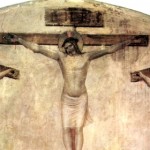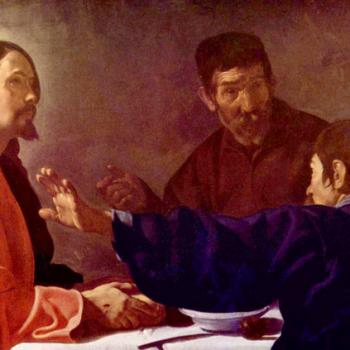It’s Easter.
For Christians, it’s always Easter, of course, even when we play the Lent game and embrace the cross for forty days per year.
This matters. I’m not just being a curmudgeon. If there’s one thing that matters for Christianity, it’s that it’s Easter. Jesus has been raised from the dead.
As the annual celebration is still coursing through my veins, so too are the debates about early Christology that I dove into last week. Those debates often swirl around how the disciples’ understanding of Jesus was transformed with their conviction that Jesus was raised from the dead.
And in the conjunction of church calendar and internet wrangling, I wonder if we’ve yet managed to dial in to the significance of this singular, Christianity-defining event?
Resurrection changes everything.
(Except, of course, when it doesn’t. More on that tomorrow.)
Let me start with how it changes everything for Jesus, and then I’ll come back next time with how it changes things for the people who want to follow him.
The most important words of the so-called great commission are these: “All authority in heaven and on earth has been given to me.”![]()
Here, the resurrected Jesus stakes claim to something that was not fully his before. By a gift of God, at the resurrection, Jesus has become Lord over all things.
This same idea is couched the language of “Messiah” and “Lord” in Peter’s sermon on Pentecost: “God has made him Lord and Messiah, this Jesus whom you crucified.” In that speech, Jesus’ resurrection is the moment when he takes his seat at God’s right hand, in fulfillment of God’s promise to David.
Paul says the same thing, using the royal “son of God” language in Rom 1:4: Jesus was appointed son of God, with power, according to the Spirit of holiness, by the resurrection from the dead.
The most important thing for us to keep our heads around as we talk about the resurrection of Jesus is that the resurrection is only significant if it is a true transformation of the human Jesus from once-dead to now-raised.
With this resurrection of the man from the clutches of death, the new creation begins to dawn.
And with the dawn of new creation comes a new image-bearing Son of God, recreated to rule the world on God’s behalf.
Resurrection means that a body has been given new life. But the connotations it bears stretch beyond the nature of the body to a particular role.
That role is the recreation of the first humans’ role, the fulfillment of the promise to David.
Now, the Human One is enthroned at God’s right hand.
This is why the most basic, and important, thing that Christians say together, the singular thing that we say in response to the resurrection, is “Jesus is Lord.”












